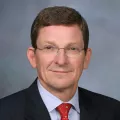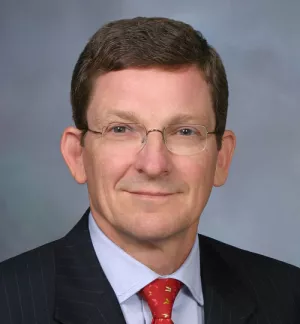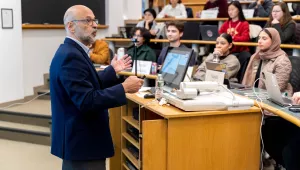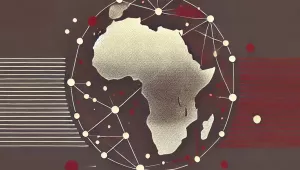Introduction
I recently read Harold Nicolson’s classic 1939 study, Diplomacy, and President Barack Obama’s May 2010 National Security Strategy back to back. Though the two publications were produced seven decades apart and are unlikely to be paired for anyone’s monthly book club, they have more in common than one might expect.
Nicolson’s volume reflects its era. He never mentions female or minority diplomats, and some of his characterizations of national traits would be considered politically incorrect today. Yet the work contains some lessons that today’s diplomats would do well to apply.
In particular, consider Nicolson’s plea that people should be clear about the definition of his chosen topic: “This word ‘diplomacy’ is carelessly taken to denote several quite different things ... as a synonym for foreign policy or for negotiations or for the processes and machinery by which negotiation is carried out.”
Nicolson turns to the Oxford English Dictionary for the following definition: “the management of international relations by negotiation, focused on official ambassadors and envoys.” Some pages later, he expands his view by recognizing that diplomacy is also about “the ordered conduct of relations between one group of human beings and another group alien to themselves.”
With that definition in mind, let us turn to the president’s National Security Strategy document, which contains its own descriptions of the purposes of diplomacy and is based on four themes that will define the jobs of today’s and tomorrow’s U.S. diplomats.
First, the NSS recognizes the power of simultaneity. It highlights the fact that while the challenges and opportunities of the 21st century can each be observed and analyzed individually, none of them can be successfully addressed without reference to the others.
As Hans Binnendijk and Richard Kugler, both of National Defense University, have put it, no single problem, danger or threat holds the key to the world’s future. What matters is their interaction and the coordination of our responses.
Second, the NSS acknowledges that diplomacy is not the answer to every question. Maintaining the strongest possible defense and being ready and willing to use force (preferably with others, but alone if necessary) are essential to protecting national security.
Third, just as diplomacy must be backed by the strongest possible defense, our capacity to influence events abroad requires a strong, resilient domestic foundation.
Fourth, the strategy conveys the message that American diplomacy will not succeed unless our allies and friends around the world support it. As New York Times columnist Thomas Friedman has written about European involvement in Afghanistan, “Don’t just show us the love; show us the money. Show us the troops. Show us the diplomatic effort.” Washington Post writer Anne Applebaum puts it this way: “Halfway through his presidency, George W. Bush found he had to drop unilateralism in favor of diplomacy. Now one wonders: at some point in his presidency, will Obama find he has to drop diplomacy in favor of unilateralism?”
Definitions Matter
Reading Diplomacy, with its emphasis on being clear about definitions, and the NSS together, I was reminded that while President Obama took office last year promising to engage the world by offering an open hand to America’s adversaries, his statements sometimes conveyed the idea that engagement was the same thing as diplomacy. This left him open to criticism that such an approach was naive.
Indeed, Nicolson might say that a challenge for diplomatic professionals is the temptation to view diplomacy as somehow synonymous with engagement. In fact, leaders and practitioners alike need to be clear that engagement is only one element of diplomacy. While engagement is important, diplomacy is about more than talking to America’s adversaries. In addition, though it does not produce results overnight, diplomacy lays the groundwork for success in the long run — at least when strategically conceived and properly executed.
In more recent statements the president has been clearer about this key distinction. For example, in a commencement speech at West Point in May, he declared that: “Engagement is not an end in itself.”
U.S. relations with Russia and Iran are two examples of the need to think clearly about the distinction between engagement and diplomacy.
Some observers criticized President
Obama’s pledge to reach out to Tehran in the early months of his administration. They cited Iranian declarations that it would build even more nuclear enrichment plants, deny or delay access to IAEA inspectors, and enrich fuel to higher percentages as evidence of the policy’s failure.
In fact, offers of American engagement at that time helped expose fissures inside the Tehran regime and between the regime and the Iranian people. Moreover, talks with Tehran last fall produced a modest nuclear deal that hardliners then rejected. Pres. Obama used this backsliding as part of a larger diplomatic strategy to rally the international community to get tougher with Iran. In November 2009, Russia and China voted with the United States in favor of an International Atomic Energy Agency resolution demanding that Iran freeze operations at its once-secret nuclear enrichment plant. And in May 2010 they supported tough United Nations Security Council sanctions on Iran, despite a Turkish and Brazilian effort to head it off.
Engagement with Iran is now only a part (and perhaps likely to be a shrinking part) of a broader U.S. diplomatic strategy to end Iran’s pursuit of nuclear weapons. The Obama administration can continue a policy of engagement to strengthen those in Tehran who want a diplomatic solution while simultaneously pursuing international support for even tighter sanctions. But in doing so, it should engage not only the regime, but the people of Iran, including the pro-democracy movement.
Toward that end, senior U.S. officials should speak out in defense of those championing freedom and human rights. Washington should also sound out Tehran’s neighbors on creating multilateral structures to dissuade Iran from pursuing its nuclear ambitions. For example
Grossman, Marc. "Speaking Out: Defining the Ideal Diplomat," Foreign Service Journal, October 2010.




